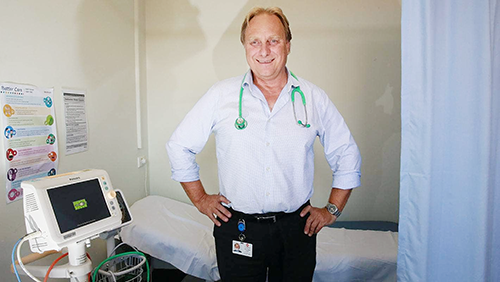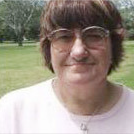Q&A with Prof Greg Snell
21-Dec-2020

Professor Greg Snell was there at The Alfred from the beginning when Trevor Williams and Don Esmore performed the first lung transplant in 1990. He left to study overseas and returned in 1992 and is still there.
In this edition of Q&A you meet another of those well
known faces at The Alfred – particularly if you have been a patient
suffering from all manner of respiratory illnesses – Professor Greg
Snell MBBS FRACP MD OAM – currently
the Medical Head of the Lung Transplant Service at the Alfred Hospital
and Monash University.

Do you remember when you made a conscious decision to make medicine your career path, and was there a particular person or event that motivated you?
Towards the end of school I met up with a family friend who was a medical specialist and he showed that medicine was a science career with lots of different directions and options.
When did you decide that a respiratory specialisation was something you wanted to pursue?
I actually started off being interested in cardiology, but when I worked as a junior doctor I discovered that the heart was actually nowhere near as interesting as the lung, and so I headed that way.
You completed a ‘Will Rogers Clinical Fellowship in Lung Transplantation’ at the University of Toronto, Canada in 1992. Can you briefly outline some similarities and differences between the Australian and Canadian health systems as they relate to respiratory illnesses and transplantation.
The biggest difference between our system and the Canadian (and American) system I saw was how involved and passionate our Australian staff were compared to their North American colleagues. Our staff take our their jobs more ‘to heart’ and work harder to get everyone the best results possible.
Can you briefly outline the pathway that brought you to The Alfred?
I trained as a lung specialist at the Repat Hospital in Heidelberg, but an extra six months was required so I took a 12 month job in Respiratory at The Alfred. This was in 1990 and the first lung transplant, organised by Trevor Williams and Don Esmore, took place 2 months later. I found this amazing and the next year I went off to study lung transplant in Toronto – the group who had done the world’s first few years before. I came back in 1992 and stayed since.
You present many papers, both locally and internationally, is there one in particular that has resonated with your professional audience?
Yes, our paper in the American Journal of Transplantation on how to increase lung transplant numbers by using donation after circulatory death (DCD) lung donors (ie when the heart stops, rather than the brain) has changed the world, with thousands of cases across the world now done using this technique.
You must see some incredibly challenging cases, in a general sense can you give an example of any successful outcomes that may have surprised you?
I have certainly seen some amazing people with incredible courage and miraculous recoveries. I am forever humbled by looking after people who survive and flourish in tough situations that I don’t think I could handle myself.
Outside your clinical work do you pursue any particular leisure activities to unwind?
Walking, swimming and if the opportunity arises skiing or sailing.
Regarding your work and patients, what is the one thing that puts a smile on your face?
Some of the funny stories that people come up with about their lives and medical adventures – particularly when they deliberately or accidentally mispronounce the name of a medicine (eg Lasix = Latex, Pseudonomas = Sodomonas)
What are you thoughts on the future treatment of CF? Are their any exciting innovations on the horizon that may assist patients with this condition?
The new CF gene modulator drugs are amazing and will change the lives of the whole CF population from now on.
*************************************************************************************
Professor Greg Snell MBBS FRACP MD OAM is currently the Medical Head of the Lung Transplant Service at the Alfred Hospital and Monash University. After completing his initial medical training at University of Melbourne, he completed the Will Rogers Clinical Fellowship in Lung Transplantation at the University of Toronto, Canada in 1992. He has been involved in the implementation of new techniques and technologies in lung transplantation, in particular the use of Donation-after-circulatory-death (DCD) lungs.
*************************************************************************************




